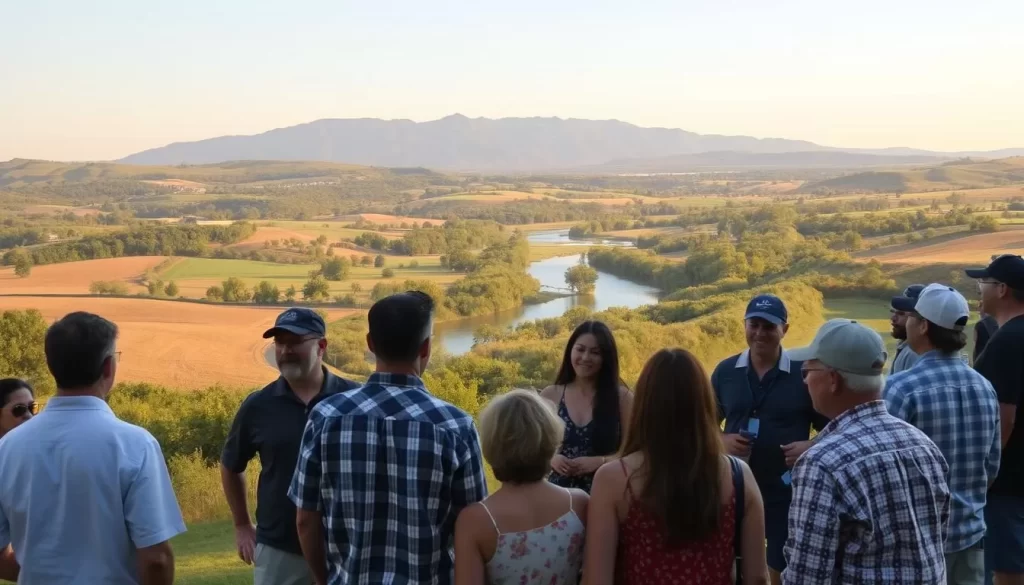✓ Accommodations ✓ Flights ✓ Rental Cars
You might be surprised to learn that Arkansas has a diverse linguistic landscape. While English is the official language of the state, many other languages are spoken by the diverse population.
As you explore the Natural State, you’ll discover that its linguistic diversity reflects both its history and modern immigration patterns. The population includes people from various backgrounds, contributing to the state’s cultural and linguistic richness.
Understanding the languages spoken in Arkansas is essential for residents, visitors, and businesses. It can impact daily life, education, and government services. As you delve into the world of languages in Arkansas, you’ll gain insights into the state’s linguistic makeup and its significance in today’s interconnected world.
The Linguistic Landscape of Arkansas
As you explore Arkansas, you’ll discover a complex tapestry of languages spoken across the state. The languages present in Arkansas are a reflection of the area’s modern and historical immigration patterns.
English as the Official State Language
English is the official language of Arkansas, used by the majority of the population for daily communication. Approximately four-fifths of the population is of European descent, and English is the primary language used by this demographic. The state government and most services operate in English, making it the predominant language for official purposes.
Language Diversity in the Natural State
Despite English being the official language, Arkansas is home to a diverse range of languages. The Hispanic population grew rapidly, with many immigrants coming from Mexico. Asians also arrived in significant numbers, particularly from China, India, the Philippines, and Vietnam. This diversity is reflected in the various spoken languages across the state.
- You’ll discover the surprising variety of languages spoken throughout Arkansas beyond English.
- The state’s geographical regions differ in their linguistic makeup, reflecting the diverse backgrounds of the people.
- Urban-rural differences in language diversity are notable across Arkansas.

Arkansas, United States: Official and Widely Spoken Languages
As you explore the languages spoken in Arkansas, you’ll discover a rich tapestry of linguistic diversity. The state’s linguistic landscape is shaped by its history, demographic trends, and geographic location.
Historical Context of Language Development
The history of language development in Arkansas is complex, with various factors contributing to the linguistic diversity seen today. Native American languages were the first to be spoken in the region, followed by the influence of European languages, particularly English and Spanish. The state’s location in the southern United States has also contributed to its linguistic profile.
Historical events, such as immigration and migration, have played a significant role in shaping the languages spoken in Arkansas. The population has been influenced by people from different linguistic backgrounds, resulting in a diverse linguistic landscape.
Current Language Demographics
According to the latest census data, an estimated 3.29 percent of the population (around 100,202 residents) have limited English proficiency (LEP). This indicates that while they may speak a language other than English at home, they may not be proficient in English. The figures reveal that many languages are spoken by residents of Arkansas.
The data provides a comprehensive breakdown of Arkansas’s current language demographics. You’ll find that the population speaks a variety of languages, with some speaking non-English languages at home. The top languages spoken in the state include Spanish and various Asian languages. The speakers of these languages are distributed across the state, with some areas having a higher concentration of non-English speakers.

Understanding the distinction between those who speak a non-English language at home but are also proficient in English versus those with limited English proficiency is crucial. This distinction helps in providing appropriate resources and services for the population.
Top 10 Non-English Languages in Arkansas
As you explore the linguistic diversity of Arkansas, you’ll discover the top non-English languages spoken in the state. The Natural State’s linguistic landscape is diverse, with various languages being spoken by its residents.
The top non-English languages in Arkansas reflect the state’s cultural diversity, with languages from different parts of the world being represented. You will find that some languages are more prevalent than others, shaping the state’s linguistic identity today.
Spanish: The Most Common Non-English Language
Spanish is the most common non-English language in Arkansas, spoken by a significant number of people at home. This is not surprising, given the large Hispanic population in the state. As a result, many industries, including education and healthcare, have made efforts to provide access to services in Spanish.
Asian Languages in Arkansas
Asian languages have a significant presence in Arkansas, with languages such as Chinese, Vietnamese, and Korean being spoken by various communities. These languages have been introduced to the state through immigration and refugee resettlement programs. For instance, the Marshallese language has been introduced to certain regions of the state through refugee resettlement programs. You can see the diversity of Asian languages in the table below:
| Language | Number of Speakers | Percentage of Population |
|---|---|---|
| Chinese | 5,123 | 0.17% |
| Vietnamese | 3,456 | 0.12% |
| Korean | 2,567 | 0.09% |

European Languages in Arkansas
European languages, such as German and French, are also spoken in Arkansas, although to a lesser extent than Asian languages. These languages have been part of the state’s linguistic landscape for many years, with some being spoken by immigrant communities. Many people in Arkansas have maintained their linguistic heritage, with some data suggesting that these languages will continue to be spoken in the state for years to come.
Other Notable Languages
Other notable languages in Arkansas include Arabic and Telugu, which round out the top 10 non-English languages in the state. With about 2,862 speakers, Arabic sits in ninth place, while Telugu has around 2,122 speakers. These languages are a testament to the state’s diverse linguistic landscape and the many languages spoken by its residents.
Limited English Proficiency in Arkansas
The diverse linguistic landscape of Arkansas brings with it the challenge of Limited English Proficiency among its residents. As a result, having access to skilled interpreters and translators is often essential to ensure reliable communication with a diverse population.
Understanding LEP Demographics
Residents of Arkansas speak a wide variety of languages. Understanding the demographics of LEP individuals is crucial for providing effective support. This includes recognizing the needs of different communities and the role of language services in facilitating their integration into society.
| LEP Group | Primary Language | Population Estimate |
|---|---|---|
| Hispanic/Latino | Spanish | 200,000+ |
| Asian Communities | Various Asian Languages | 50,000+ |
Challenges and Resources for LEP Residents
LEP individuals in Arkansas face various challenges, from navigating healthcare systems to accessing education and government services. To address these challenges, resources such as interpretation services, translated materials, and community support organizations are available. Organizations like Acutrans play a vital role by providing professional interpreters and translators, ensuring access to essential services.

By understanding the demographics and challenges of LEP residents, Arkansas can continue to improve communication and access to vital services, ultimately enhancing the quality of life for these communities.
Immigration History and Its Impact on Arkansas Languages
As you explore the linguistic landscape of Arkansas, you’ll discover how immigration has shaped the state’s language diversity. The state’s population has been influenced by various immigrant groups, resulting in a unique linguistic landscape.
Early Settlement Patterns
By the 21st century, approximately four-fifths of the population was of European descent, with a substantial African American population. As immigrants from other countries arrived, the language landscape began to shift. The Hispanic population grew rapidly, particularly with immigrants from Mexico.
- The early settlement patterns laid the foundation for the state’s language diversity.
- Immigrants from Europe and Africa contributed to the initial language landscape.
Modern Immigration Trends
In recent decades, immigrants from various countries have continued to shape the linguistic landscape of Arkansas. The Hispanic population has continued to grow, making Spanish the dominant non-English language in the state. Asians have also arrived in significant numbers, with immigrants from China, India, the Philippines, and Vietnam contributing to the state’s language diversity.
The translation needs of these diverse communities have become increasingly important, particularly in healthcare and other essential services. As a result, the demand for translations has grown, reflecting the changing needs of the population.
Conclusion: Embracing Linguistic Diversity in Arkansas
Embracing the many languages spoken in Arkansas is crucial for creating an inclusive environment that benefits both English and non-English speakers. The state’s linguistic diversity is a rich tapestry that contributes to its cultural identity and economic growth.
By understanding the languages and translation services available, businesses, healthcare providers, and government agencies can better serve Arkansas’s multilingual population. This not only enhances communication and access to services but also fosters a more inclusive community.
As Arkansas continues to evolve, embracing its linguistic diversity will position the state for success in an increasingly globalized world. Partnering with a top-quality language services provider like Acutrans can help you achieve undeniable results. For reliable, professional interpreters or translators, contact Acutrans for a free quote today.
The above is subject to change.
Check back often to TRAVEL.COM for the latest travel tips and deals.






